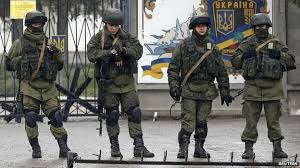 Dubai’s main attraction is shopping. Maybe not an obvious vacation choice for us non-shoppers.
Dubai’s main attraction is shopping. Maybe not an obvious vacation choice for us non-shoppers.
Luckily, there was a big international art fair, with worldwide dealers exhibiting cool modern work. Almost as cool was ogling the other attendees.
Dubai is not a place of historicity.  It has the feel of one that arose from the desert yesterday, which is pretty much true. Patches of desert remain, among the skyscrapers. Dubai is also one of the most internationalized of countries – indeed, the natives are a small minority of the population, which is not even mostly Middle Eastern, a great many inhabitants being from India, Pakistan, the Philippines, and elsewhere.
It has the feel of one that arose from the desert yesterday, which is pretty much true. Patches of desert remain, among the skyscrapers. Dubai is also one of the most internationalized of countries – indeed, the natives are a small minority of the population, which is not even mostly Middle Eastern, a great many inhabitants being from India, Pakistan, the Philippines, and elsewhere.
But back to shopping. The Dubai Mall is the world’s largest, with 1200 stores (and it sprouts the world’s tallest building, the Burj Khalifa).  Right inside the entrance we were greeted by a dinosaur, and her handler. The dino was a full size fossil skeleton of an 80 footer. The handler was an attractive young Filipina whose job was to explain about the dinosaur to passing visitors like us.
Right inside the entrance we were greeted by a dinosaur, and her handler. The dino was a full size fossil skeleton of an 80 footer. The handler was an attractive young Filipina whose job was to explain about the dinosaur to passing visitors like us.  She was well schooled in all things dinosaurian, properly scientific; but at the end sweetly confided that she had trouble reconciling that science stuff with her “beliefs.”
She was well schooled in all things dinosaurian, properly scientific; but at the end sweetly confided that she had trouble reconciling that science stuff with her “beliefs.”
We spent an hour sauntering through The Mall of the Emirates, though without setting foot inside a single store. The anchor attraction there is the indoor skiing facility – yes, in fact, an entire enclosed snowy winterland, with the temperature kept below freezing. Visitors can rent cold weather gear – padded jackets, woolen caps, mittens, boots. Sure amused us, coming to Dubai to escape such weather in Albany, NY. In Dubai, they pay to experience it.
Dubai is a wealthy country and the glitz of its malls makes ours here seem almost shabby in comparison. This is not a place for Abdul Sixpack to shop.  As my wife remarked, “You’d think the world runs on shoes and handbags.” Designer shoes and bags at that. Are there enough wealthy people to keep so many upscale stores in business? Apparently. Wearing a full burqa is not incompatible with carrying the most chic designer handbag. Not to mention a bag of purchases from Victoria’s Secret.
As my wife remarked, “You’d think the world runs on shoes and handbags.” Designer shoes and bags at that. Are there enough wealthy people to keep so many upscale stores in business? Apparently. Wearing a full burqa is not incompatible with carrying the most chic designer handbag. Not to mention a bag of purchases from Victoria’s Secret.
Sinful you might call this conspicuous consumption, no doubt bringing in the word “inequality” and drawing invidious contrast between the pampered, privileged folks buying Hermès bags and Prada shoes, and the unwashed masses who can’t feed their children. As if (many imagine) children go hungry because others have wealth they spend on luxuries.
But that’s not how the world works. In fact such spending by the rich supports a slew of jobs that make the poor less poor. Sneer if you like at the trophy wives buying Prada, but be careful what you wish for – without that spending, the poor would be a lot worse off. And don’t imagine that if the rich had less in the first place, others would have more. The world doesn’t work that way either.
Anyway, I wasn’t put off by watching Dubaians thronging to the malls to shop till they drop. I love it. Better this than grim-faced austerity (and poverty).  And I couldn’t help thinking, strolling the mall while the news was full of Crimea, that this is a far better model for how life should be.
And I couldn’t help thinking, strolling the mall while the news was full of Crimea, that this is a far better model for how life should be.
Gucci, not guns. Make money, not war.

































